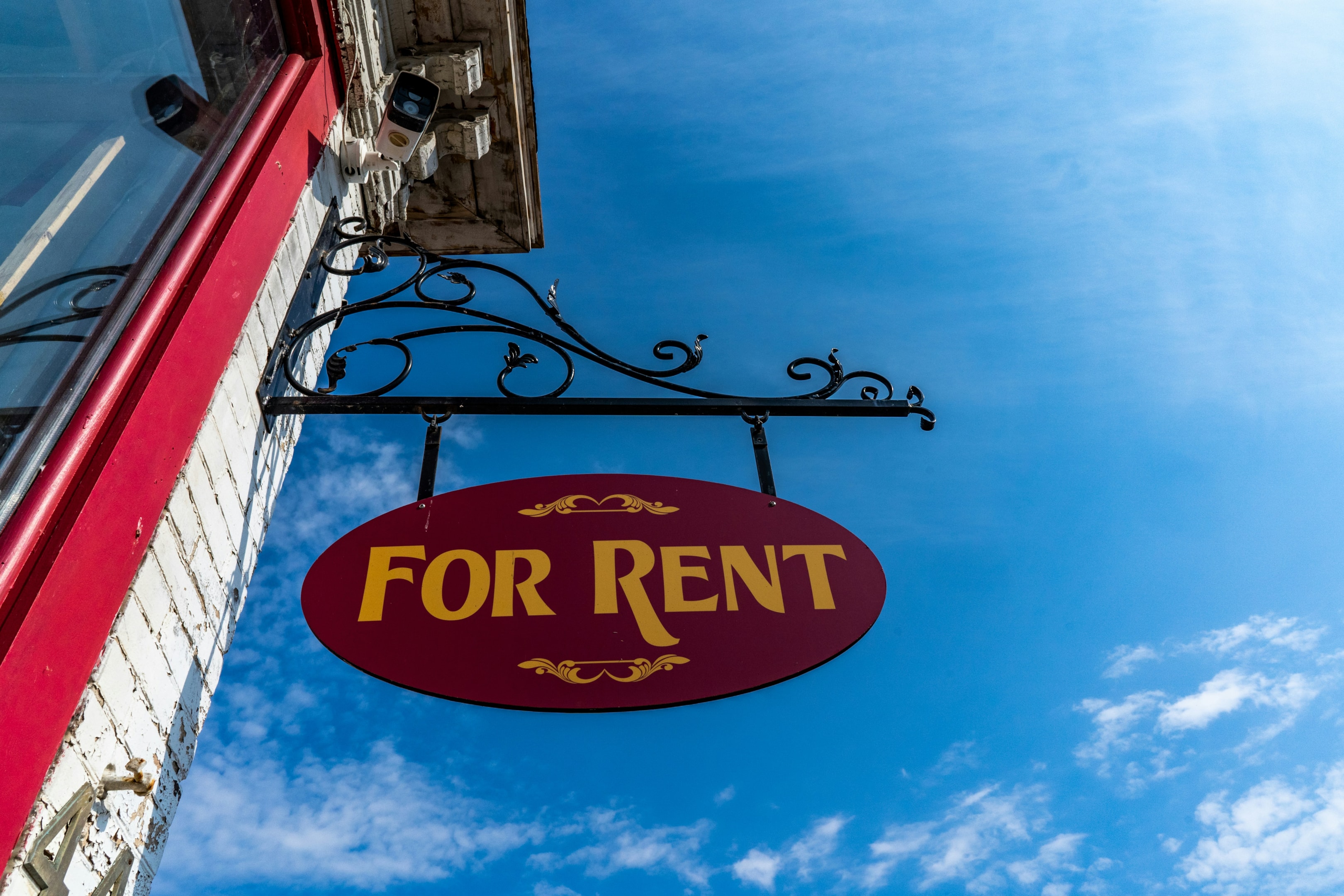Crowdfunding Real Estate Deals: Powerful Insights for Smart Investors
Introduction to Crowdfunding Real Estate Deals
For decades, real estate investing was reserved for the wealthy elite and institutional players, but today, crowdfunding real estate deals are leveling the playing field by allowing investors of all backgrounds to tap into this wealth-building asset class with platforms offering property shares for as little as a few hundred dollars. These innovative crowdfunding platforms enable multiple investors to pool their resources and participate in a wide range of real estate projects—from residential developments to large-scale commercial real estate opportunities—acting as intermediaries that connect investors with diverse investment offerings. This democratization of access significantly expands individual investors' opportunities in the real estate market, making property investment more inclusive and accessible than ever before.

Understanding Real Estate Investment
Real estate investment has long been a cornerstone of wealth-building strategies for both individuals and institutions. Thanks to the rise of real estate crowdfunding platforms, real estate investing is no longer limited to those with significant capital or industry connections. These innovative platforms allow multiple investors to pool their resources and participate in a wide range of real estate projects, from residential developments to large-scale commercial real estate opportunities. By leveraging real estate crowdfunding, investors—both accredited and non-accredited—can access diverse real estate investments without the need to directly manage properties, opening the door to potential passive income and portfolio diversification. Whether interested in commercial real estate or residential projects, crowdfunding platforms provide a streamlined, inclusive way to invest alongside like-minded individuals, democratizing access to the real estate market like never before. To learn more about real estate investing, and the financial benefits that can come from it, check out Maximize Your Returns: Tax Benefits of Real Estate Investing Explained.
What is Real Estate Crowdfunding?
Definition and Concept
Real estate crowdfunding is when multiple investors pool resources online to fund a property deal—whether a new development, rental community, or fix-and-flip project. This approach allows project sponsors to raise money from a large group of people, making it easier to finance real estate projects.
How It Differs from Traditional Investing
Unlike buying rental properties directly (with high capital requirements), crowdfunding allows fractional ownership without property management headaches. Unlike REITs (Real Estate Investment Trusts), you're investing in specific deals instead of a broad fund—meaning you can buy shares in individual properties, such as commercial or retail assets, rather than pooled investments.
Why Crowdfunding Real Estate Deals Are Growing
Technology Driving Growth
Digital platforms like Fundrise and CrowdStreet offer easy-to-use dashboards, project data, and transparent performance metrics, allowing investors to monitor and evaluate investment performance in real time.
Democratization of Real Estate Investment
In the past, minimums were $100,000+. Investment minimums have dropped dramatically, making it possible for more people to participate. Now, with crowdfunding, investors can start with as little as $500. This inclusivity has fueled growth worldwide.
Types of Real Estate Crowdfunding
Equity Crowdfunding
Investors own shares in a property, and in some cases, equity crowdfunding opportunities may involve real estate funds, allowing investors to participate in pooled real estate investments. Profits come from rental income and property appreciation.
Debt Crowdfunding
Investors lend money for a project in exchange for interest payments, usually secured by the property. In many real estate crowdfunding deals, this takes the form of senior debt, where investors hold a senior position in the capital stack, providing financing for various property types.
Hybrid Models
Some platforms combine both, balancing stability with potential for higher returns.
Benefits of Real Estate Crowdfunding
Accessibility and Lower Minimums
Platforms open the market to more people, lowering barriers to entry. Many platforms also provide educational resources to help investors understand the process and make informed decisions.
Diversification Opportunities
You can spread investments across multiple markets and property types—residential, commercial, industrial. By investing in multiple properties, you further diversify your portfolio and reduce risk associated with any single asset.
Passive Income Potential
Many platforms distribute quarterly or monthly dividends, creating steady cash flow. Some platforms also offer income REIT options, which are structured to generate regular income for investors.
Transparency and Online Platforms
Detailed property data, project updates, and investor dashboards provide visibility not found in traditional deals. Platforms also disclose their management fee structures, ensuring investors have clear and transparent information about the costs involved.

Risks Involved in Crowdfunding Real Estate Deals
Market Volatility
Just like any real estate investment, crowdfunding is tied to property cycles and economic downturns, and fluctuations in property values can significantly impact investment outcomes. Investors should be prepared for these market fluctuations, which can affect rental income and the overall return on investment.
Liquidity Challenges
Most crowdfunding investments are locked for 3–7 years. They're not as liquid as stocks. This means investors may not be able to access their funds quickly if they need cash, making it important to consider your investment horizon before committing.
Platform Risk
If the platform goes bankrupt, access to funds and updates may be disrupted. Additionally, platform failures can lead to delays in distributions or difficulties in communicating important information to investors.
Regulatory Considerations
Real estate crowdfunding falls under securities regulations. Always verify a platform's compliance. Staying informed about regulatory changes is crucial, as these can impact the types of investments available and investor protections.
Key Players in the Real Estate Crowdfunding Market
Popular Platforms
Popular platforms in the real estate crowdfunding industry offer investors a way to pool their money and access a variety of real estate projects. Fundrise is known as the best option for beginners due to its low minimum investment requirements. CrowdStreet focuses on large commercial projects, catering primarily to accredited investors interested in substantial commercial real estate opportunities. RealtyMogul provides a diverse range of offerings, including both debt and equity deals, allowing investors to participate in various types of real estate crowdfunding investments.
Investor Communities
Online investor forums and groups give access to peer reviews and real experiences, helping you choose platforms wisely. These communities also help investors identify platforms that align with their investment preferences, such as asset type, location, risk level, and investment amount. Networking is a valuable tool to meet with other investors in your area, to learn more read Mastering Real Estate Networking: Successful Strategies for Success.
Accredited Investors and Crowdfunding
Accredited investors have traditionally enjoyed greater access to exclusive real estate crowdfunding opportunities, qualifying by meeting specific financial criteria such as an annual income of at least $200,000 (or $300,000 with a spouse) for the past two years or a net worth exceeding $1 million, excluding their primary residence. These requirements ensure they possess the financial sophistication and resilience to manage the risks associated with alternative investments like real estate crowdfunding. However, the industry is evolving, with many real estate crowdfunding platforms now offering opportunities to non-accredited investors, often featuring lower minimum investment requirements. This shift is making real estate investing more inclusive, enabling a broader range of people to participate in the growth of the real estate market. Whether you are an accredited investor seeking high-value deals or a non-accredited investor looking to start small, today's crowdfunding platforms provide flexible options tailored to different investment goals and risk tolerances.
Investing in Commercial Real Estate through Crowdfunding
Commercial real estate investing has become increasingly accessible through real estate crowdfunding platforms, which offer a variety of investment opportunities in property types such as office buildings, retail centers, industrial warehouses, and more. Investors can choose from different investment structures, including debt investments—where they act as lenders and receive interest payments—or equity investments, which provide a share of rental income and potential appreciation. Each platform sets its own minimum investment, ranging from as little as $1,000 to $100,000 or more, depending on the opportunity's size and scope. By participating in commercial real estate crowdfunding, investors can diversify their portfolios across multiple property types and geographic locations, spreading risk while gaining the potential to earn rental income and benefit from long-term growth—all without the need to directly manage properties or negotiate complex deals. To learn more about getting into the niche of commercial properties, read Maximizing Returns in Commercial Real Estate: Strategies for Investors.
Rental Properties and Crowdfunding
Rental properties have long been favored by investors seeking steady cash flow and long-term appreciation. Real estate crowdfunding platforms have made investing in rental properties more accessible and hassle-free by allowing individuals to pool funds to buy shares in single-family homes, apartment complexes, or vacation rentals. This approach offers passive income benefits, as property management and tenant relations are handled by experienced real estate professionals, enabling investors—whether new or seasoned—to add rental properties to their portfolios without the responsibilities of being landlords.

Real Estate Project Financing in Crowdfunding
Financing is at the heart of every successful real estate project, and real estate crowdfunding platforms have revolutionized how these projects are funded by connecting investors directly with real estate developers and property owners seeking capital for new developments, renovations, or acquisitions. These platforms offer a range of investment opportunities, including debt investments, equity investments, and preferred equity options, allowing investors to earn returns through fixed interest payments, dividends, or a share in the property's appreciation depending on the deal structure. Typically, real estate crowdfunding platforms provide comprehensive property details, investment terms, and risk assessments, empowering investors to make informed decisions. By participating in real estate project financing via crowdfunding, individuals gain access to a diverse pipeline of real estate projects, benefit from professional due diligence, and have the potential to grow their wealth through both income and capital gains—all while supporting the development of new and exciting properties in the real estate market.
How to Start Investing in Crowdfunding Real Estate Deals
Choosing the Right Platform
Look for track records, transparency, and customer reviews, and review the acquisition fee structures, as these fees are a standard part of deal costs and can impact your returns.
Assessing Risk and Return
Examine deal documents carefully. Look at projected IRR (Internal Rate of Return), hold periods, and market conditions.
Building a Diversified Portfolio
Instead of putting $10,000 into one deal, spread it across multiple projects to reduce risk and build a diversified real estate portfolio.
Advanced Strategies for Maximizing Returns
Reinvesting Dividends
Compounding dividends into new projects accelerates long-term wealth growth. For example, the Yieldstreet Alternative Income Fund allows investors to reinvest dividends, providing access to diversified alternative asset classes and supporting ongoing portfolio growth.
Balancing Equity and Debt Deals
A blend of both can help balance high-risk/high-reward investments with more stable income streams. Debt investors, who participate in crowdfunding by providing capital for debt deals, typically earn quarterly dividends at an agreed-upon interest rate, offering a more predictable return compared to equity investments.
Long-Term vs. Short-Term Investments
Match your investment strategy with your financial goals—long-term appreciation vs. short-term cash flow. Many crowdfunding deals are part of the private market, offering access to exclusive investment opportunities that are typically less liquid and focused on long-term growth.

Conclusion
Crowdfunding real estate deals are transforming the way people build wealth in property markets by providing accessibility, diversification, and passive income opportunities, while also carrying risks such as limited liquidity and exposure to market cycles. By carefully selecting platforms, diversifying investments across multiple deals, and reinvesting dividends, investors can effectively maximize returns and mitigate risks.